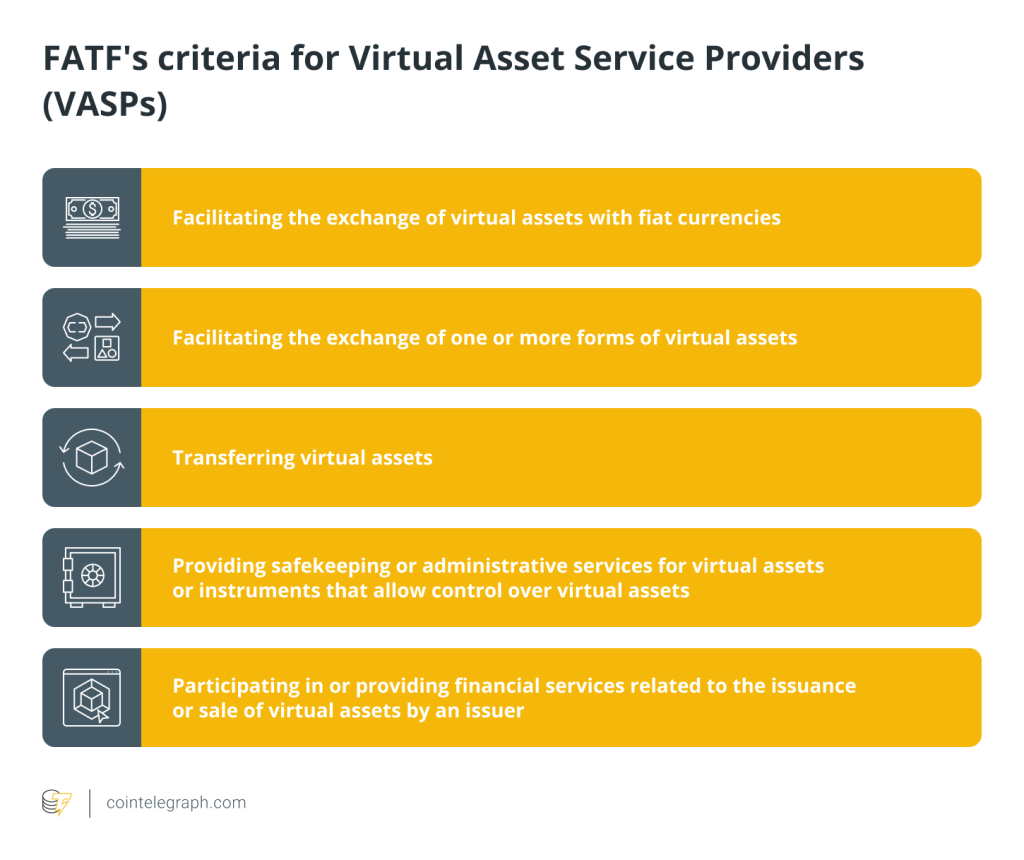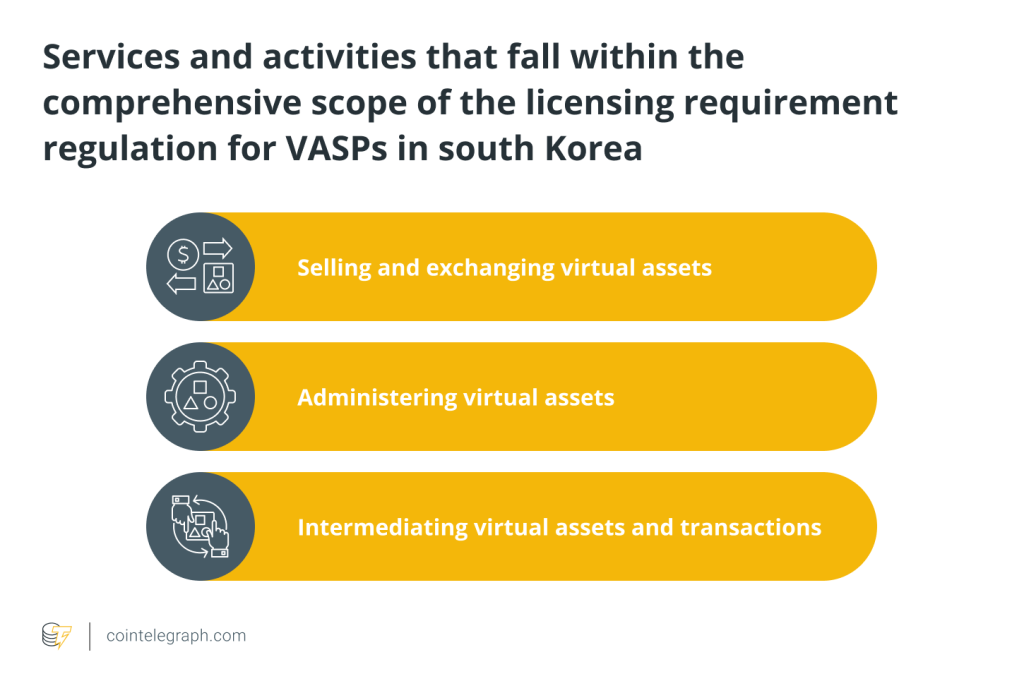Nigerian exchanges face licensing hurdles as analysts urge SEC guidelines overhaul

Kue Barinor Paul, a Nigerian Web3 legal representative, said that Nigerian crypto exchanges and VASPs would likely have to merge to afford the SEC license requirement.

The Nigerian Securities and Exchange Commission’s (SEC) crypto licensing requirements should revisit the virtual asset services providers (VASP) guidelines to enable local crypto exchanges to get licenses to operate in the country, according to Nigerian crypto analyst Rume Ophi.
In an interview with Cointelegraph, Ophi explained that the existing guidelines provided by the SEC to guide the registration of VASPs are not favorable to indigenous crypto exchanges, adding that local exchanges should have been a priority when formulating the guidelines.
Exchanges must obtain a VASP license from the SEC by complying with the application processing requirements, a registration fee and other applicable fees.
https://t.co/VCJA4NhnAj
— Thecryptopreacher. (@Rumerule) January 26, 2024
Ophi explained that many local exchanges cannot afford the minimum upfront capital requirement of 500 million naira ($556,620), which he said will result in primarily foreign exchanges being operational in Nigeria instead of having a healthy balance.
Supporting Ophi’s view, Kue Barinor Paul, a Nigerian Web3 legal representative, said during a spaces conversation on X hosted by Ophi that Nigerian crypto exchanges and VASPs would likely have to merge to afford the SEC license requirement.
Paul said the Nigerian SEC needs to rework the framework for license registration as the current requirements are mainly friendly to foreign exchanges.
Related: Web3 faces regulatory hurdles in Africa, slowing progress
In May 2022, the Nigerian SEC published a 54-page document titled “New Rules on Issuance, Offering Platforms and Custody of Digital Assets.” The document opens doors for cryptocurrency service providers in Nigeria and details guidelines on how the country’s banking and financial institutions can interact with digital assets.
Ophi further noted that the National Assembly of Nigeria needs to get involved to ensure that the SEC’s licensing requirements are in line with the current realities of the country’s economy.
A global survey with participants from 15 nations revealed that Nigeria, the largest economy in Africa, boasts the highest level of cryptocurrency awareness worldwide. According to Chainalysis’ “2023 Cryptocurrency Geography Report,” Nigeria secured the second position in crypto adoption out of the 154 countries assessed.
The nation’s anticipated high crypto adoption was expected to attract increased foreign crypto investment. However, Ophi attributes the low investment rate to the recent removal of the ban on financial institutions serving crypto exchanges.






… [Trackback]
[…] Here you will find 62289 additional Information to that Topic: x.superex.com/news/bitcoin/3751/ […]
… [Trackback]
[…] Find More on that Topic: x.superex.com/news/bitcoin/3751/ […]
… [Trackback]
[…] Read More to that Topic: x.superex.com/news/bitcoin/3751/ […]
… [Trackback]
[…] Find More Info here on that Topic: x.superex.com/news/bitcoin/3751/ […]
… [Trackback]
[…] Read More on that Topic: x.superex.com/news/bitcoin/3751/ […]
… [Trackback]
[…] Find More to that Topic: x.superex.com/news/bitcoin/3751/ […]
… [Trackback]
[…] Find More Info here to that Topic: x.superex.com/news/bitcoin/3751/ […]
… [Trackback]
[…] Read More here to that Topic: x.superex.com/news/bitcoin/3751/ […]
… [Trackback]
[…] Read More on on that Topic: x.superex.com/news/bitcoin/3751/ […]
… [Trackback]
[…] Read More Info here on that Topic: x.superex.com/news/bitcoin/3751/ […]
… [Trackback]
[…] Information to that Topic: x.superex.com/news/bitcoin/3751/ […]
… [Trackback]
[…] Read More Info here to that Topic: x.superex.com/news/bitcoin/3751/ […]
… [Trackback]
[…] Here you can find 66486 additional Information to that Topic: x.superex.com/news/bitcoin/3751/ […]
… [Trackback]
[…] Information on that Topic: x.superex.com/news/bitcoin/3751/ […]
… [Trackback]
[…] There you will find 70450 additional Information on that Topic: x.superex.com/news/bitcoin/3751/ […]
… [Trackback]
[…] Info on that Topic: x.superex.com/news/bitcoin/3751/ […]
… [Trackback]
[…] Find More here to that Topic: x.superex.com/news/bitcoin/3751/ […]
… [Trackback]
[…] Here you can find 6446 more Info to that Topic: x.superex.com/news/bitcoin/3751/ […]
… [Trackback]
[…] Find More Info here to that Topic: x.superex.com/news/bitcoin/3751/ […]
… [Trackback]
[…] Find More Info here to that Topic: x.superex.com/news/bitcoin/3751/ […]
… [Trackback]
[…] Information on that Topic: x.superex.com/news/bitcoin/3751/ […]
… [Trackback]
[…] Information to that Topic: x.superex.com/news/bitcoin/3751/ […]
… [Trackback]
[…] Read More to that Topic: x.superex.com/news/bitcoin/3751/ […]
… [Trackback]
[…] Find More to that Topic: x.superex.com/news/bitcoin/3751/ […]
… [Trackback]
[…] Find More on on that Topic: x.superex.com/news/bitcoin/3751/ […]